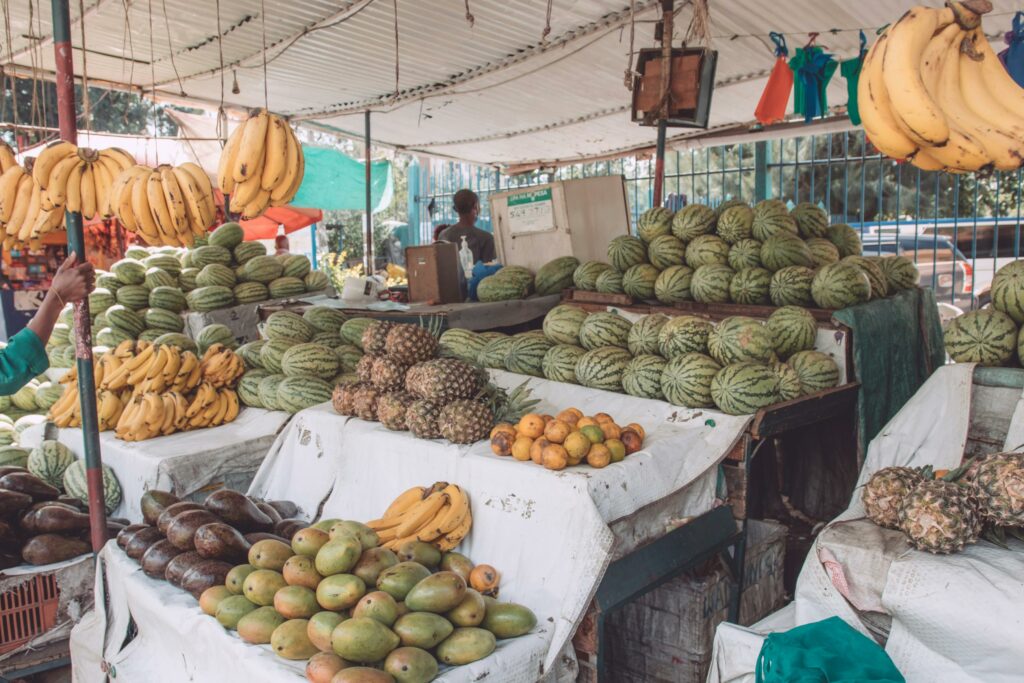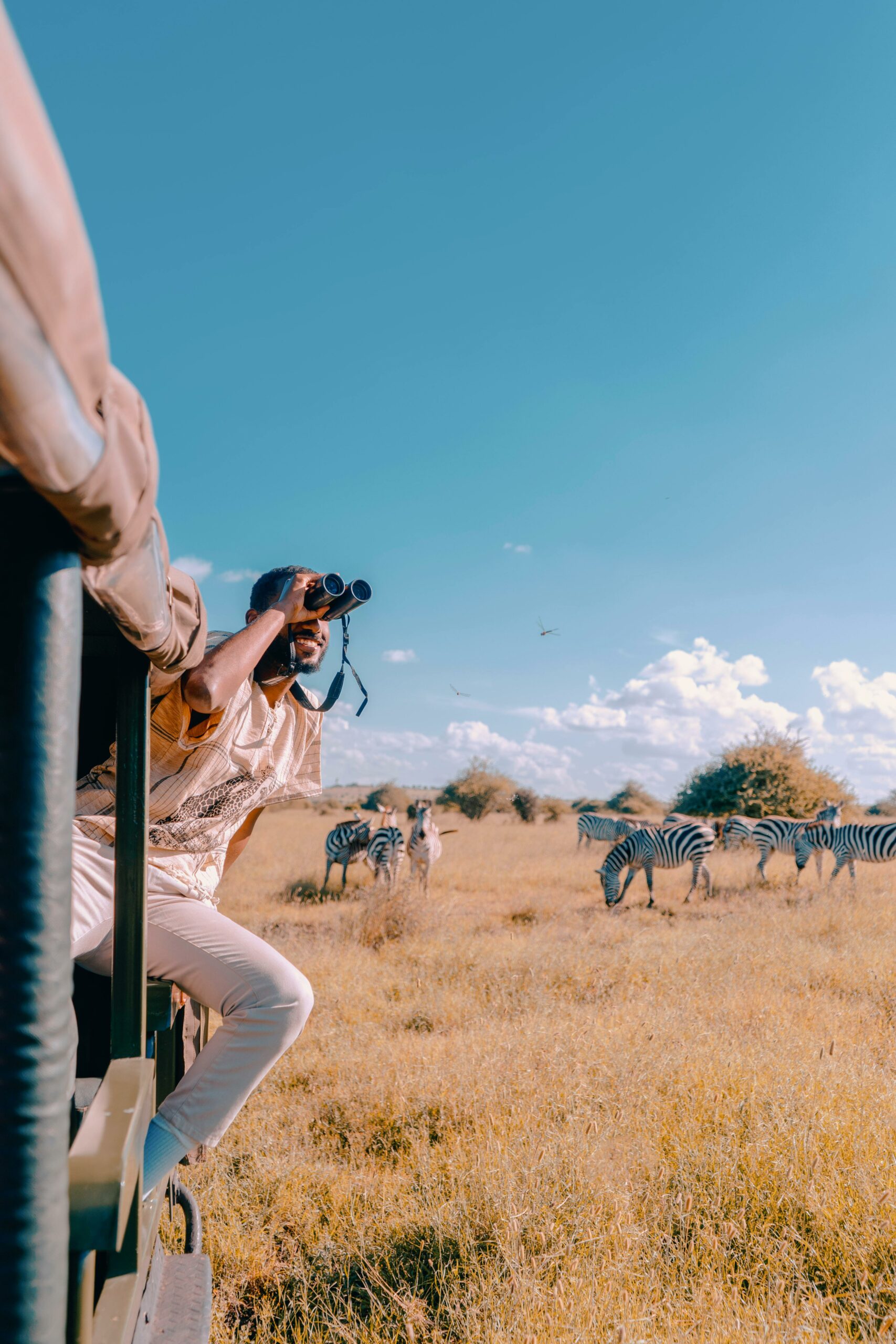Dreaming of your first African safari? Want to witness The Lion King in real life? Kenya offers lifetime adventure like no other! From breathtaking landscapes to the Big Five, here’s your ultimate kenya travel advisory and everything you need to know before you pack up your bags, for a smooth and unforgettable trip.
1. Kenya Electronic Travel Authorization (eTA) requirements
Who needs a visa?
- East African passport holders: No visa required, but you may need a yellow fever card.
- Other travelers: since 2024 Kenya has moved to an online eTA system; you can no longer get a visa on arrival.
Steps to Apply for an E-Visa
- Visit the official e-visa website: ETA kenya
- Click apply now and follow the instructions
- Upload the required documents ie valid passport copy, passport photo, travel itinerary, accommodation details and contact information
- Pay the visa fee, submit and wait for confirmation email
- Wait for approval takes around 48-72 hours
- Print or save your e-visa on your phone to show at the entry point.
Visa validity: 90 days, extendable for another 90 days.
2. Best Time to Visit Kenya (Weather Guide)
Kenya enjoys the best weather throughout the year, located at the equator, we don't have winters, autumn or spring, only two main seasons ie dry and rainy. Best Time to Visit? june–October (dry season, perfect for safaris) or January–February.
Generally you can visit kenya any time, even during rainy season because nothing will stop you from seeing the wild or going to the beach. Meanwhile here’s what to expect on your next trip to kenya:
- Coastal Areas (eg Mombasa, watamu, Diani): Hot & humid year-round (20–40°C).
- Nairobi & Central Kenya: Mild days (up to 27°C), cooler mornings & evenings.
- Western Kenya: Warm with frequent rains.
- Rift Valley: Cool due to high altitude (home of Kenya’s world-class marathon runners!).
- Northern Kenya: Hot and arid.
3. What to pack for a trip to kenya
Kenya’s diverse climate means you’ll need to pack wisely depending on where you'll visit and the activities you'll take, it's advisable to pack wisely, here's an overview
- Light, breathable clothing (cotton T-shirts, trousers).
- A light jacket or hoodie for cooler evenings.
- Sturdy shoes (hiking/running shoes) and a pair of Crocs for comfort.
- Neutral-colored clothing (avoid bright colors especially during safari to blend in with the environment and avoid disturbing the wild animals)
what to pack for a kenyan Safari: quick packing guide
- Binoculars for spotting the wildlife.
- Sunscreen - kenyan sun can be extreme especially if you plan to visit the kenyan coast.
- Hat and sunglasses will save you big time
- Camera with extra batteries.
- bring a fully charged phone, a charger and/or power bank
4. Where to Stay in Kenya (Accommodation Guide)
Kenya offers diverse accommodations, from budget to luxury and for environment conscious travellers we have a range of eco lodges that goafrika partners with for your satisfaction.
- Budget: Hostels, Couchsurfing.
- Mid-range: Airbnb, guesthouses, boutique hotels.
- Luxury: Safari lodges, high-end hotels.
Best Booking Platforms: Booking.com, Agoda, Airbnb, Flipkey. Check TripAdvisor for reviews before booking or let me book a suitable one with great deals.
5. Language in Kenya
Kenya is a multilingual country with over 42 ethnic groups, each having their own native language and sometimes sub-lingua. I come from the biggest indigenous group in kenya it has five sub-languages, i'm able to understand all five but i speak three fluently. Despite all these languages two of them unite us,
- English: Widely spoken (used in schools, transport, media, on safari etc).
- Swahili: The second national language.
Coming soon: A guide to useful Swahili phrases for tourists!
6. Money & Payments in Kenya
Kenyan Shilling (KES) is the currency, always have small denominations for quick purchases. Kenya is less cash economy but huge on mobile money hub. M-Pesa & Airtel Money (a one of a kind innovation) are widely used.
Pro Tip: When you arrive at the airport, purchase a safaricom or airtel sim card, download the M-Pesa or Airtel money app and set up mobile money with your provider. The process takes few minutes, they'll also teach you how to navigate mobile payment options for seamless transactions throughout your trip.
7. Transportation in Kenya

Must try kenya unique transport system
- Matatus – Vibrantly decorated minibuses, affordable and iconic.
- Boda-bodas – Motorbikes for quick rides, door to door rides or deliveries
- Tuk-Tuks – Three-wheeled taxis (common at the coast).
- Online taxis – Uber, Bolt, Little Cabs.
- Train (SGR) – Connects Nairobi to Mombasa & Kisumu.
- Domestic flights – Jambojet, Safarilink for quick local travel
- Walking: Also known as Footsubishi – be ready to double your daily steps!
8. Must-Try Kenyan Food & Drinks

Don’t miss out on Kenya’s delicious cuisine from local eateries (mama ntilie) to coastal markets or upscale restaurant like carnival Nairobi. Tropical fresh fruits commonly sold on the roadsides or in the supermarkets are a must try,
- Nyama Choma (grilled meat)
- Ugali (maize meal like kasza manna)
- Chapati (soft flatbread like naan)
- Swahili cuisine (biryani, pilau)
- Maziwa mala our traditional kefir version
Ultimate kenya travel advisory; drink bottled water or boil tap water before drinking, don't forget to wash your fruits before eating.
9. Health & Safety Tips for Kenya
Vaccinations Required: Yellow Fever, not mandatory if you're coming from europe, but if you're planning to cross over to Tanzania or Uganda you'll get one on the border.
Recommended Precautions: Malaria pills, Vaccines for hepatitis, meningitis, typhoid, rabies (for animal lovers). Carry insect repellent & a basic first aid kit. Here's a complete food and water safety guide while in kenya.
Travel Insurance: Highly recommended—get special activity cover if you're planning to go on safaris or climbing activities.
Useful Health Resources:
10. Kenyan Culture & Etiquette
Kenya is known for its warm hospitality, the people are very open, smiling and we love visitors, the kids are always curious of people from different cultures. Here are some tips to blend in:
- Greet with a handshake or polite nod or say Habari?
- Dress modestly in rural areas & religious sites.
- Tipping: 10–15% in restaurants, for guides & safari staff will always be appreciated.
African Travel planner and Consultant
At Go Afrika, I help you plan unforgettable, stress-free safaris across Kenya — from hidden gems to iconic parks. As a Kenyan based in Poland, I bring you the best of both worlds: insider knowledge, personalized travel planning and ultimate kenya travel advisory from someone who knows the land, the people and the real experiences.
Whether you’re a first-timer or a seasoned traveler, I’ll guide you through choosing the best safari parks, planning the perfect route and connecting you with reliable local guides — all within your budget.
Email me at info@goafrika.eu or WhatsApp me on +48 793 514 962 and let's go africa!


3 Responses
[…] kenya for the first time? don’t pack your bags before reading this kenya travel advisory and by following these essential Kenya health and safety tips, you can explore this beautiful […]
[…] I hope this 2025 kenya travel guide has opened your eyes, but first did you know you can no longer get a visa on arrival in kenya? checkout visa application process here […]
[…] put the fear away but first, here’s your kenya travel checklist, and let me plan your safe trip to kenya, Let’s Go Afrika! […]